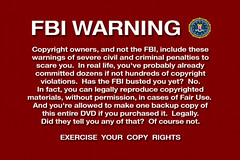Real-World Cryptography

InfoSec and Compliance – With 20 years of blogging experience, DISC InfoSec blog is dedicated to providing trusted insights and practical solutions for professionals and organizations navigating the evolving cybersecurity landscape. From cutting-edge threats to compliance strategies, this blog is your reliable resource for staying informed and secure. Dive into the content, connect with the community, and elevate your InfoSec expertise!
Jun 13 2021
If there is any moral to this, it’s one that all of my blog readers should already know: trust is essential to security. And the number of people you need to trust is larger than you might originally think. For an app to be secure, you need to trust the hardware, the operating system, the software, the update mechanism, the login mechanism, and on and on and on. If one of those is untrustworthy, the whole system is insecure.
It’s the same reason blockchain-based currencies are so insecure, even if the cryptography is sound.

Jan 12 2010

Malware: Fighting Malicious Code
By FBI NPO
The FBI warned consumers today about an ongoing threat involving pop-up security messages that appear while they are on the Internet. The messages may contain a virus that could harm your computer, cause costly repairs or, even worse, lead to identity theft. The messages contain scareware, fake or rogue anti-virus software that looks authentic.
The message may display what appears to be a real-time, anti-virus scan of your hard drive. The scareware will show a list of reputable software icons; however, you can’t click a link to go to the real site to review or see recommendations. Cyber criminals use botnets—collections of compromised computers—to push the software, and advertisements on websites deliver it. This is known as malicious advertising or “malvertising.”
Once the pop-up warning appears, it can’t be easily closed by clicking the “close” or “X” buttons. If you click the pop-up to purchase the software, a form to collect payment information for the bogus product launches. In some instances, the scareware can install malicious code onto your computer, whether you click the warning or not. This is more likely to happen if your computer has an account that has rights to install software.
Downloading the software could result in viruses, malicious software called Trojans, and/or keyloggers—hardware that records passwords and sensitive data—being installed on your computer. Malicious software can cause costly damages for individual users and financial institutions. The FBI estimates scareware has cost victims more than $150 million.
Cyber criminals use easy-to-remember names and associate them with known applications. Beware of pop-up warnings that are a variation of recognized security software. You should research the exact name of the software being offered. Take precautions to ensure operating systems are updated and security software is current. If you receive these anti-virus pop-ups, close the browser or shut down your computer system. You should run a full anti-virus scan whenever the computer is turned back on.
If you have experienced the anti-virus pop-ups or a similar scam, notify the Internet Crime Complaint Center (IC3) by filing a complaint at www.ic3.gov.

Dec 22 2009

The Wall Street Journal
The Federal Bureau of Investigation is probing a computer-security breach targeting Citigroup Inc. that resulted in a theft of tens of millions of dollars by computer hackers who appear linked to a Russian cyber gang, according to government officials.
The attack took aim at Citigroup’s Citibank subsidiary, which includes its North American retail bank and other businesses. It couldn’t be learned whether the thieves gained access to Citibank’s systems directly or through third parties.
The attack underscores the blurring of lines between criminal and national-security threats in cyber space. Hackers also assaulted two other entities, at least one of them a U.S. government agency, said people familiar with the attack on Citibank.
The Citibank attack was detected over the summer, but investigators are looking into the possibility the attack may have occurred months or even a year earlier. The FBI and the National Security Agency, along with the Department of Homeland Security and Citigroup, swapped information to counter the attack, according to a person familiar with the case. Press offices of the federal agencies declined to comment.
Joe Petro, managing director of Citigroup’s Security and Investigative services, said, “We had no breach of the system and there were no losses, no customer losses, no bank losses.” He added later: “Any allegation that the FBI is working a case at Citigroup involving tens of millions of losses is just not true.”
Citigroup is currently 27%-owned by the federal government.
The threat was initially detected by U.S. investigators who saw suspicious traffic coming from Internet addresses that had been used by the Russian Business Network, a Russian gang that has sold hacking tools and software for accessing U.S. government systems. The group went silent two years ago, but security experts say its alumni have re-emerged in smaller attack groups.
Security officials worry that, beyond stealing money, hackers could try to manipulate or destroy data, wreaking havoc on the banking system. When intruders get into one bank, officials say, they may be able to blaze a trail into others.
Continue reading at The Wall Street Journal
